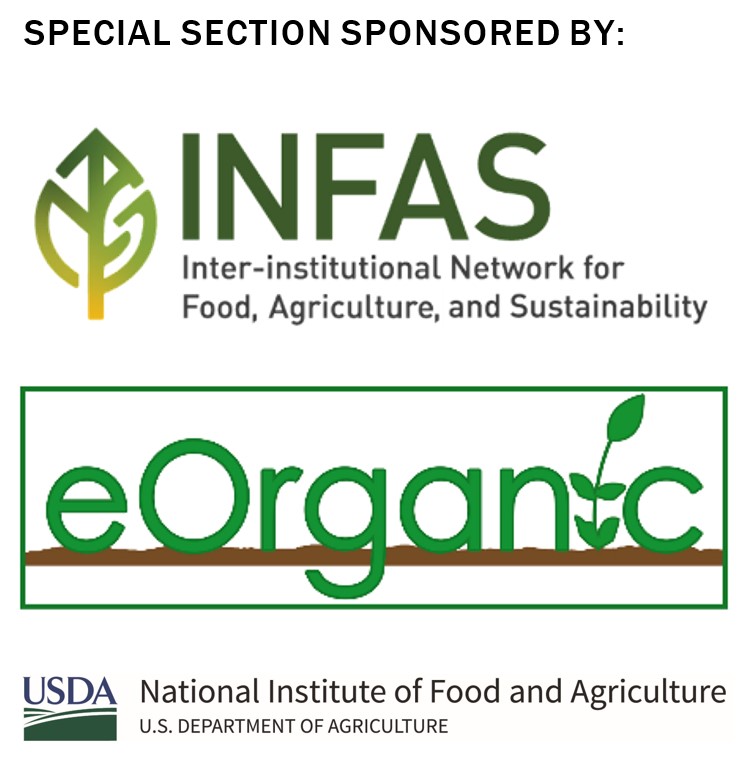Farmer knowledge as formal knowledge
A case study of farmer-led research in Ontario, Canada
DOI:
https://doi.org/10.5304/jafscd.2023.124.010
Keywords:
Farmer-led Research, Ecological Agriculture, Farmer-to-Farmer Networks, Knowledge-Sharing, Social Learning, Evidence-Informed Practice, OntarioAbstract
Farmer-led research (FLR) is a process of inquiry wherein farmers use scientific methods to address their own on-farm curiosities and challenges in ways that are compatible with the scale and management style of their operations. With its flexible, adaptable, participatory, grassroots-oriented nature, FLR has typically been employed by farmers interested in ecological farming techniques and technologies, and evidence shows that it contributes to the adoption and improvement of ecological management practices across a range of contexts. Engagement in FLR initiatives has also been linked to positive social outcomes, including community-building, farmer empowerment, and enhanced capacity for leadership and collective action. In this paper, we present a case study of the Ecological Farmers Association of Ontario’s (EFAO) Farmer-Led Research Program (FLRP), which is currently one of relatively few FLR initiatives in North America. We draw on data from a participatory, mixed-methods research project. Our results highlight how the FLRP is enabling farmers to feel more knowledgeable, confident, motivated, and inspired to adopt and/or improve ecological practices on their farms, in part by supporting them in building robust social networks that align with their farming values and priorities.
Metrics

Downloads
Published
How to Cite
Issue
Section
License
Copyright (c) 2023 Erin Nelson, Sarah Hargreaves, Dillon Muldoon

This work is licensed under a Creative Commons Attribution 4.0 International License.
The copyright to all content published in JAFSCD belongs to the author(s). It is licensed as CC BY 4.0. This license determines how you may reprint, copy, distribute, or otherwise share JAFSCD content.













